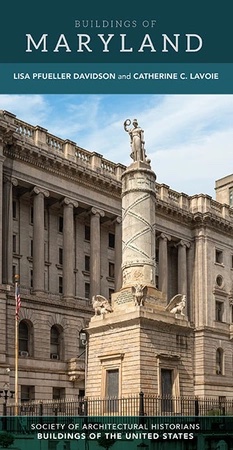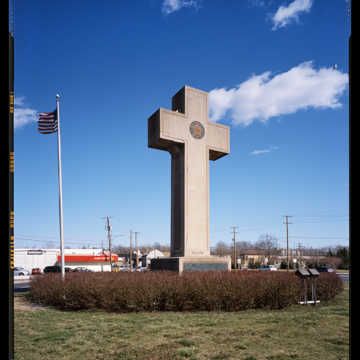The Prince George’s County World War I memorial takes the striking form of a forty-foot tall Latin cross fashioned from exposed aggregate concrete panels. A local American Legion post sponsored the project and dedicated the memorial on July 12, 1925. Local concrete innovator Earley designed and constructed the memorial using his patented method of creating precast panels incorporating colorful exposed aggregate mosaics. Earley’s concrete construction appears in projects around the country and in the Washington area at the Justice Department, Meridian Hill Park, and the Polychrome Houses. The Peace Cross, which features the American Legion symbol at its center, also served as the starting point of the new National Defense Highway between Bladensburg and Annapolis. The memorial was the subject of a 2019 U.S. Supreme Court decision allowing it to remain over the objections of the American Humanist Association, which filed a federal lawsuit objecting to the presence of religious symbolism on what is now public property.
You are here
PEACE CROSS
If SAH Archipedia has been useful to you, please consider supporting it.
SAH Archipedia tells the story of the United States through its buildings, landscapes, and cities. This freely available resource empowers the public with authoritative knowledge that deepens their understanding and appreciation of the built environment. But the Society of Architectural Historians, which created SAH Archipedia with University of Virginia Press, needs your support to maintain the high-caliber research, writing, photography, cartography, editing, design, and programming that make SAH Archipedia a trusted online resource available to all who value the history of place, heritage tourism, and learning.















